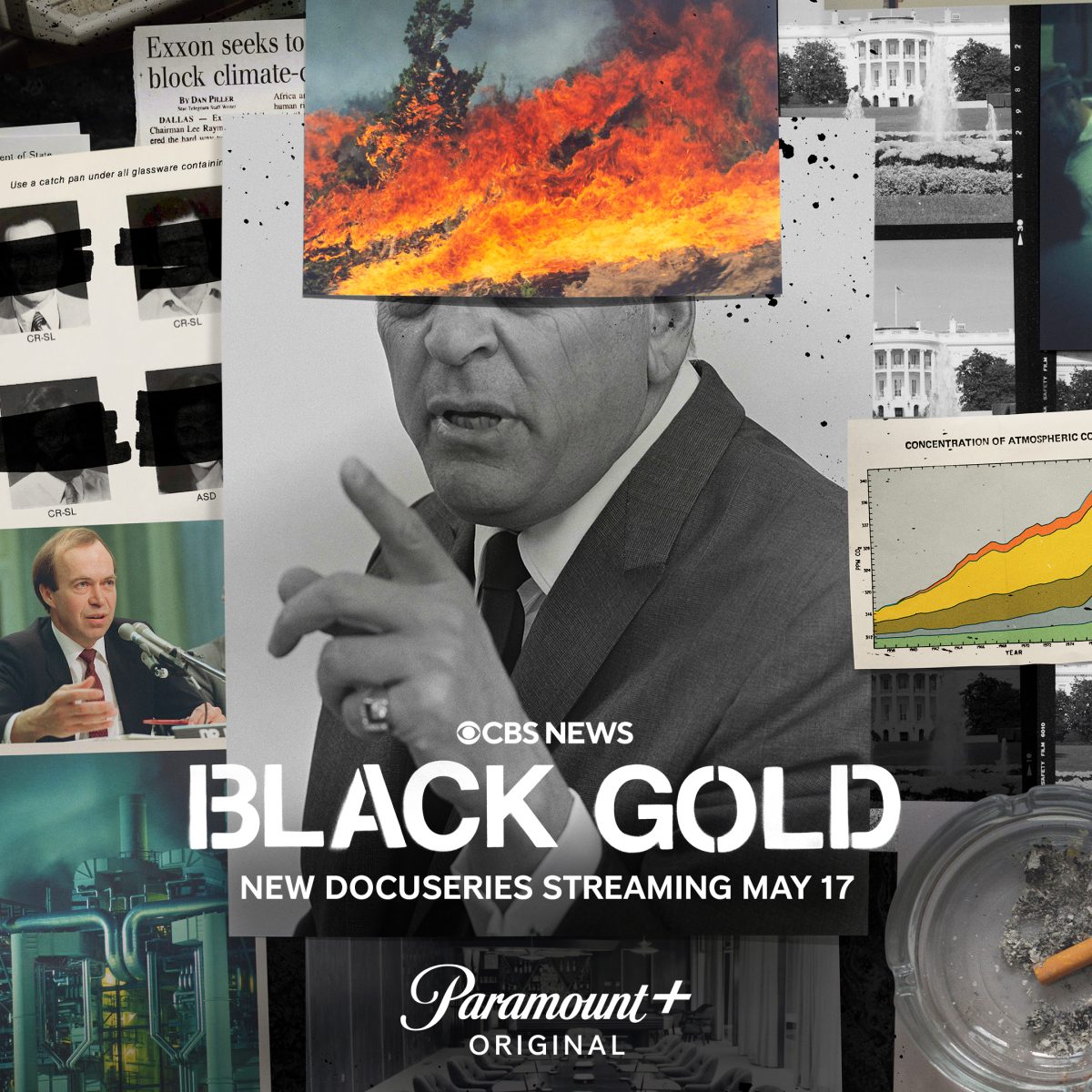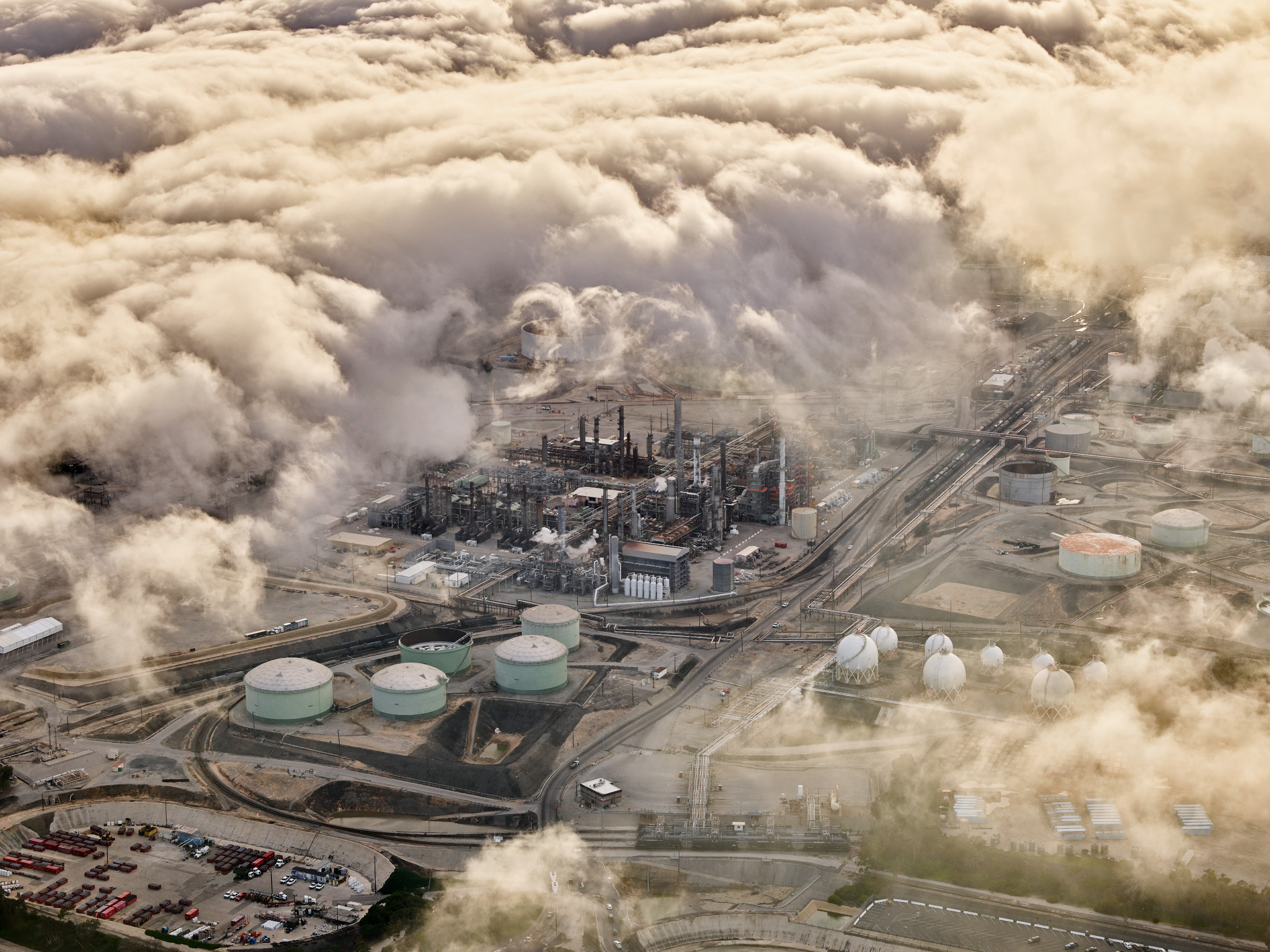
At the end of the first quarter of 2021, as the CEOs of the three biggest U.S. oil and gas companies presented their firms’ earnings, investors fired off a range of questions about how they were addressing climate change. The market had already come to view fossil fuels as old, dirty energy, and after oil prices cratered in 2020, owing largely to the pandemic, investors wanted to know how these companies would adapt. They asked about whether carbon capture could be an engine to grow revenue and how the companies viewed the climate-policy landscape. “We are committed to providing products to help customers reduce their emissions,” said Darren Woods, the CEO of ExxonMobil. “Across the globe we’re helping economies decarbonize.”
This year, the conversation was much different. Oil and gas are now hot commodities following the Russian invasion of Ukraine, and on first-quarter investor calls in 2022, those same CEOs announced massive profits. As investors dialed in to pepper the CEOs with questions, the topic of climate change hardly came up. Instead, investors focused on dividends and share buybacks: ways the companies can pass along their profits to shareholders.
For years, activists and politicians have condemned the industry for its efforts to deny the science of climate change and delay any action to address it. But what really moves the industry—like any big industry—is financial performance. In the years leading up to the COVID-19 pandemic, energy was the worst-performing sector in the S&P 500 stock index—a reality that slowly but surely forced leaders to question their business model. Now, the financial rejuvenation of the oil and gas industry has created a complicated dynamic for those pushing the sector to align with the realities of climate change. Money talks, and right now there’s a lot of money to be made digging up and selling oil and gas. In a complete reversal from two years prior, energy is now the best performing sector of 2022 and the only industry on the S&P 500 stock index that has seen valuations rise this year.
This renewed profitability has already raised alarms for many concerned about the science of climate change. In a 2021 report, the International Energy Agency laid out a pathway for the world to meet the targets set in the Paris Agreement, which calls for limiting global temperature rise to less than 2°C relative to pre-industrial levels. To do that, public- and private-sector- leaders need to pour trillions of dollars into clean energy, while also reducing financing for fossil fuels. Oil production needs to fall 75% by 2050; to get there, the world should already be ending investment in new fossil fuel production sites. “The scientists tell us that if we want to have a planet that is still livable, emissions need to come to net zero by 2050,” says Fatih Birol, the head of the IEA. “If these things happen, oil demand will go down.”
These dual exigencies—an industry turning a healthy profit on its core products and the urgent need to decarbonize the global economy—have led activists around the world to ask a variation on the same question: How will the reign of oil and gas end? Another way to put it: In a free-market system where profit rules, how do you phase down a product that’s making a profit?

Produced by TIME Studios and Darren Aronofsky’s PROTOZOA, Black Gold tells the story of the coverup of the century—a gripping documentary exposing a global conspiracy that changed the world forever. BlackGold debuts in theaters nationwide on May 11, followed by its Paramount+ docuseries debut on May 17. Click here to purchase tickets.
Decades ago, before climate change entered the vernacular, oil companies studied the science of how burning fossil fuels would warm the planet and realized as early as the 1970s that addressing climate change would threaten their core business. To protect their profits, they hid the evidence and launched public relations campaigns to sow doubt with the public and obstruct appropriate regulation. In Black Gold, TIME’s new docuseries on the history of ExxonMobil’s denial of the science of climate change, viewers witness the oil and gas industry’s decades-long effort unfold as the planet warms. Scientists are silenced and shadowy dark-money groups are brought on to help shape the public conversation. The bottom line was profit. “It’s hard to imagine putting the fate of humanity at such risk in return for more money,” former Vice President Al Gore, who won the Nobel Peace Prize for his climate activism, says in the series.
The efforts paid dividends. Presidential administrations committed to enacting climate policy, namely those of Bill Clinton and Barack Obama, struggled to get efforts off the ground as industry lobbying dissuaded would-be supporters. Under Republican administrations, the industry enjoyed unparalleled access, with former executives serving in key positions of authority and making government policy. Even President Biden, who campaigned on a promise to be the most climate-forward President yet, took office with climate plans largely centered on incentivizing clean energy rather than penalizing fossil fuels.
Denying climate-change science and delaying action are often portrayed by activists as a moral crime. “From a human perspective, it is the gravest sin I can imagine,” says Christine Arena, a former PR executive at Edelman who quit in protest of the company’s work with oil and gas trade groups, in Black Gold. Unsurprisingly, industry leaders don’t view it that way. In a 2019 interview, I asked Shell CEO Ben van Beurden about a campaign accusing his company of knowing about climate change for decades and failing to act. Van Beurden acknowledged that “yeah, we knew” and added, “everybody knew.” He went on to argue that Shell had since publicly acknowledged the science of climate change, but society had failed to act. In other words, the blame shouldn’t fall on Shell; in a free-market economy, the role of a corporation is to make a profit, and, in that context, the company was delivering just as it was supposed to do.
Indeed, when the price of oil declined and profits waned in the mid-2010s—thanks to widespread deployment of fracking and horizontal drilling—the industry all of a sudden became vulnerable to pushes for change. Protesters staged die-ins at oil company headquarters. Climate activists used reports about the industry’s decades of climate denial to make a moral case. Meanwhile, college students pushed their universities to divest from fossil fuels, winning some victories while pushing public perception to grow more antagonistic toward oil and gas.
These efforts made it harder to recruit talent into the industry and left companies increasingly vulnerable to regulation. Still, nothing challenged the industry’s attitude toward climate as much as the change in tone from investors. By 2020, according to the Forum for Sustainable and Responsible Investment, some $17 trillion dollars in investment had flowed into so-called ESG -investments—short for environmental, social and governance—and executives felt the pressure to offer a positive narrative about how their companies were approaching climate. “In the world of money, everyone lives on bended knee,” Brian Thomas, a managing director at Prudential Private Capital, said at an industry conference in March. “The industry is beginning to kind of morph its behavior to reflect the concerns of its investor base, right or wrong.”
Regardless of climate concerns, investors across the board fretted about the dismal financial performance of oil and gas—the industry was failing to make money and needed to be disrupted. “The basic model is in pieces, it’s fallen apart,” Tom Sanzillo, director of finance at the Institute for Energy Economics and Financial Analysis, told me at the time. “This is an industry in last place.”
Fossil-fuel companies embarked on efforts to change; the approach varied by company and region, but by and large they were piecemeal and insufficient. In an October 2021 hearing, members of the House Oversight Committee asked executives from some of the world’s largest oil and gas firms about their plans to address climate change. ExxonMobil CEO Woods cited the company’s investment in natural gas as an emissions-reducing tool. The CEO of Chevron said his company would try to emit less carbon in its operations.
In short, the scale of the industry’s changes doesn’t match the science. Mike Sommers, the head of the American Petroleum Institute summed it up in a January 2022 address. While offering an unequivocal declaration that his industry needs to address climate change, he made clear that the industry would not shrink voluntarily. “We reject efforts to scale back domestic production,” he said. “This is about addition, not subtraction.”

For a brief moment, the Russian invasion of Ukraine seemed to offer an opportunity for the energy industry to change course. Following the initial attacks, proponents of clean energy suggested that the moment created a unique chance for policymakers to nudge the economy off fossil fuels. After all, oil and gas paid for Vladimir Putin’s war efforts and left people around the world vulnerable to the economic consequences of higher fuel prices. The European Commission, the E.U.’s executive body, quickly produced a plan to wean the bloc off Russian gas with a dramatic proposal to ramp up the development of clean energy infrastructure. But, on the other side of the Atlantic, the policy picture has been less promising. Republicans opposed to climate legislation have used the spike in oil prices to blame the Biden Administration’s climate initiatives for hurting consumers. And the Administration has softened its climate messaging, tempering it with calls for greater oil and gas production in the short term.
Still, even without government policy to serve as a nudge, the oil and gas industry could have used the moment to embrace a different course. As prices rose, companies found themselves flush with no-strings-attached cash that could have been used to finance a true pivot toward green initiatives. But so far, companies have mostly used the money to pay enormous dividends to shareholders and buy back stock, thereby inflating the stock price. ExxonMobil made $5.5 billion in the first quarter of 2022; it plans to spend $30 billion buying back stock by 2023. Chevron made more than $6 billion; it said it would buy back $10 billion by the end of the year. Shell made $9.1 billion; it plans to repurchase $8.5 billion in shares in the first half of the year alone.
The dynamic has led advocates, activists, and politicians to rethink their messaging. As consumers pay more for energy, criticizing the industry for its climate failures may not have the same resonance as it once did. Recent polls have shown that while the majority of Americans remain concerned about climate change, the issue has fallen on the list of priorities. Gas prices, on the other hand, seem destined for center stage as the U.S. approaches congressional midterm elections.
And so the advocates have turned their attention to the enormous profit companies are making. The companies, these advocates say, should cut the price of their product—or else face a windfall profit tax that would take that money and return it to American taxpayers. “We need an offensive narrative: we’re just saying ‘Blame Putin,’ and they’re saying ‘Blame Biden,’” says Ro Khanna, a Democratic representative from California who is chair of the House Oversight Subcommittee on the Environment. “That’s not enough. We need to be saying ‘Blame Big Oil.’”
On the surface, the pivot to talking about the industry’s profit margin may seem like an unfortunate turn away from the urgent reality of pushing these companies to slow fossil-fuel production. But it cuts to the core of the challenge the oil and gas industry poses to addressing climate change. Profits drove the industry’s climate denial from the beginning; profits are driving investment decisions today. When oil is truly no longer a good investment, its reign will come to an end.—With reporting by Mariah Espada
More Must-Reads from TIME
- Cybersecurity Experts Are Sounding the Alarm on DOGE
- Meet the 2025 Women of the Year
- The Harsh Truth About Disability Inclusion
- Why Do More Young Adults Have Cancer?
- Colman Domingo Leads With Radical Love
- How to Get Better at Doing Things Alone
- Michelle Zauner Stares Down the Darkness
Write to Justin Worland at justin.worland@time.com